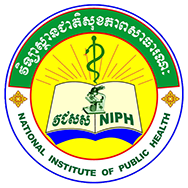
Antibiotic resistance is a global public health threat. It is a multidisciplinary challenge to communities, patients, health services, laboratories and health policies. The 59th Colloquium of the Institute of Tropical Medicine Antwerp (ITM) and its Cambodian partners will feature the latest clinical, biomedical and public health research on antibiotic resistance.
Experts from the Mekong region and around the world will also discuss how this research can be translated into evidence-based policy. They will also address agricultural and livestock production practices in a “One Health” approach to contain antibiotic resistance. The Colloquium will offer a platform for researchers, health professionals and policy makers to identify how key research findings can contribute to solutions and inform policy-making.
The five pillars for the containment of antibiotic resistance identified by the Word Health Organization will be used to structure the content of the colloquium:
- Improving awareness and understanding of antimicrobial resistance through effective communication, education and training.
- Strengthening the knowledge and evidence base through surveillance and research.
- Reducing the incidence of infection through effective sanitation, hygiene and infection prevention measures.
- Optimising the use of antimicrobial medicines in human and animal health.
- Developing the economic case for sustainable investment that takes account of the needs of all countries and to increase investment in new medicines, diagnostic tools, vaccines and other interventions.
The National institute of Public Health (NIPH) with its partner, Knowledge to Policy Centre (K2P Centre) of the American University of Beirut, a World Health Organization Collaborating Center for Evidence-Informed Policy and Practice is organizing the first Policy Fellowship Program that strives to build the capacity of policy fellows to ensure impact in the field of Health Policy and Systems Research (HPSR) in Cambodia. This program includes courses on HPSR and coaching to produce a policy brief of a priority health policy problem in Cambodia.
It is our hope that experiences and knowledge shared during the program will help to promote the use of evidence-informed decision making through building the capacity, skills, self- development and ensure the positive impact from the policy briefs at the end of the program.
In this regard, we are calling for applicants in our country, Cambodia. You can read more details in the link below on the overall program, the course offered at NIPH and how to apply: https://bit.ly/hpsrNIPH
